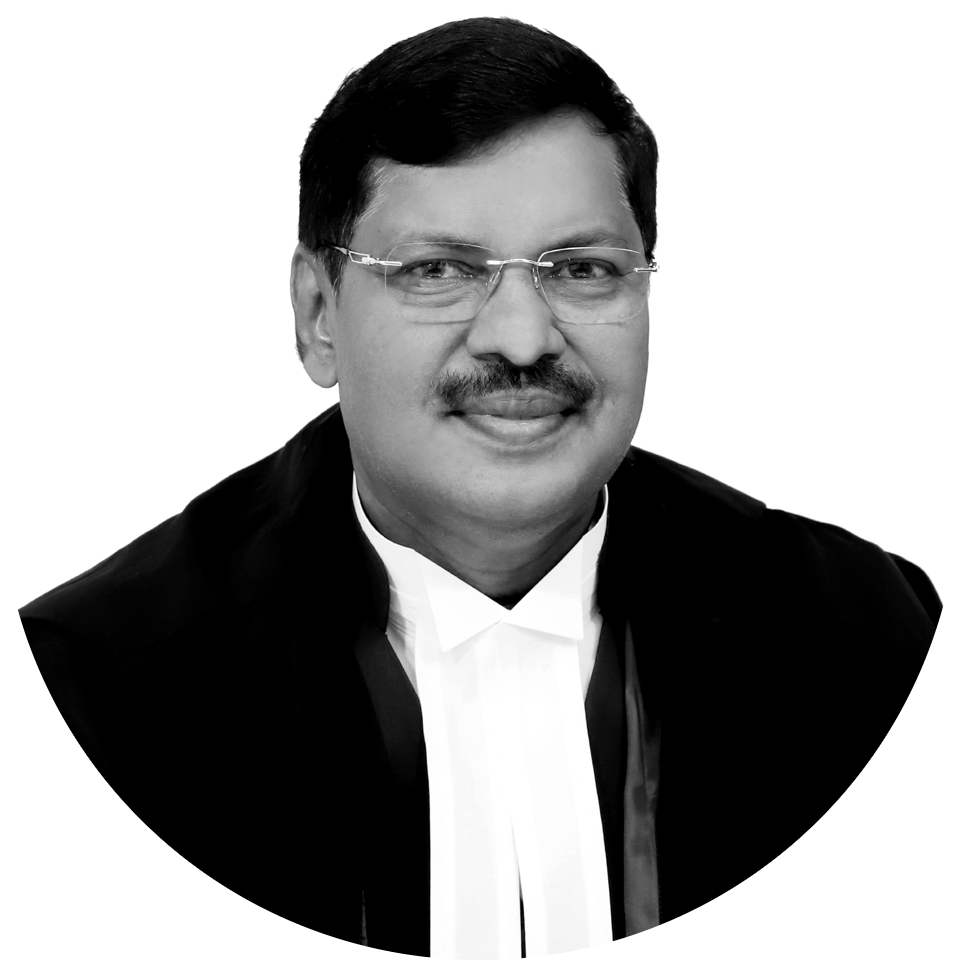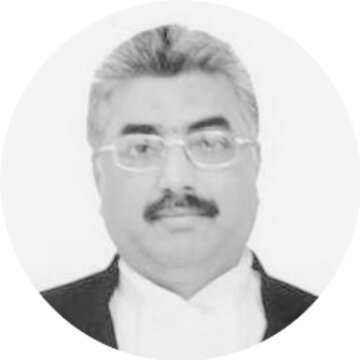Supreme Court: In a civil appeal regarding the rendering of a candidate ineligible for the Persons with Disabilities (‘PwD’) reservation or for pursuing a medical course as per the National Medical Commission (‘NMC’) Gazette notification, the three judge bench of BR Gavai, Aravind Kumar and KV Viswanathan*, JJ. held that quantified disability per se will not disentitle a candidate with benchmark disability from being considered for admission to educational institutions. The candidate will be eligible if the Disability Assessment Board (‘DAB’) opines that notwithstanding the quantified disability the candidate can pursue the course in question. The NMC regulations in the notification of 13-05-2019 read with Appendix H-1 should, pending the re-formulation by NMC, be read in the light of the holdings in this judgment.
Further, the Court, while setting aside the impugned order of the High Court, confirmed the admission of the appellant and directed the authorities to treat the admission as a valid admission in the eye of law.
Background:
The appellant was a good student and an aspiring doctor. He has speech and language disability and is diagnosed with Hypernasality with Misarticulation Repaired Bilateral CLEFT of palate. The appellant is certified to have 45% permanent disability as per the disability certificate dated 18-05-2017.
The appellant applied for the National Eligibility Cum Entrance Test NEET (UG), 2024 for admission to MBBS Course from the category of Persons with Disability (‘PwD’) and Other Backward Classes (OBC) on 18-02-2024.
The application form had a disclaimer clause which stated that the eligibility under the PwD Category was purely provisional and was to be governed as per the NMC guidelines regarding admission of students with “specified disabilities” under the (‘RPwD Act’).
The appellant appeared for the NEET (UG) held on 05-05-2024 and qualified for the entrance examination. The Schedule for Centralized Admission Process (CAP) Round-I counseling for admission was notified on 20-08-2024. The appellant applied for the centralized admission process and claimed reservation under the OBC and the PwD category. In the provisional merit list published on 26-08-2024, the name of the appellant figured at 42091. Under the Information brochure, candidates with disability have to submit a disability certificate issued for the year 2024 and have to undergo medical examination at the Disability Assessment Board.
The appellant approached the Designated Disability Certification Centre, which certified that the appellant has physical disability of speech and language of 44% and recorded that based on quantification of disability, the appellant was not eligible to pursue the medical course as per NMC norms. In view of that, the appellant was rendered ineligible to obtain PwD reservation or to pursue medical course as per the NMC Gazette notification.
The Bombay High Court by the order dated 29-08- 2024 stood over the matter to 19-09-2024 and did not pass any interim order. As the last date for submitting the choice for admission was 29-08-2024, the appellant with great alacrity moved to Supreme Court seeking urgent reliefs.
The Supreme Court directed that the seat which the appellant would have been entitled, if rendered eligible, be kept vacant. Further, it also directed the Dean, Byramjee Jeejeebhoy Government Medical College and Sassoon General Hospital, Pune to constitute a Medical Board consisting of one or more specialists, having domain expertise pertaining to the appellant’s disability. The Medical Board was to specifically examine whether the speech and language disability of the appellant would come in his way of pursuing the MBBS Degree Course.
The Medical Board opined that the appellant’s speech and language disability would not come in the way of the appellant pursuing the MBBS Course.
Thus, the Court directed the authorities to admit the appellant against the seat, which was directed to be kept vacant as per the previous orders.
Issue:
Merely because the disability is quantified at 44% or 45%, should the appellant be disqualified to obtain admission under the PwD Category for the MBBS Course?
Analysis and Decision:
The Court took note of Article 41 in the Directive Principles of State Policy, ad observed that it is the Constitutional goal of our nation that within the limits of its economic capacity and development, the State was to make effective provisions for securing the right to education including for the persons with disabilities.
The Court noted that the replaced the Persons with Disabilities (Equal Opportunities, Protection of Rights and Full Participation), Act 1995.
The Court examined Sections , , , , and of the , and noted that it is in pursuance of the 5% reservation provided for the persons with disabilities that the appellant applied for the MBBS course under the said category. He cleared the exam, however, was denied admission on the ground that his quantified disability was 44%/45%. Further, the Court noted that Appendix H-I provides that while people with less than 40% disability are not eligible for PwD quota, though they can pursue the Medical Course, persons with equal to or more than 40% disability are not eligible for the medical course.
The Court said that the column under the guidelines “Eligible for Medical Course, Eligible for PwD quota” is left blank reinforcing the absurd position that under this category no one is rendered eligible for the 5% reserved quota. However, that cannot be the legal position.
Adopting the purposive interpretation of the RPwD Act, the Court opined that merely because of the quantification of the disability for speech and language at 40% or above, a candidate does not forfeit his right to stake a claim for admission to course of their choice any such interpretation would render the clause in Appendix H-1 under the Graduate Medical Education Regulations of the Medical Council of India (‘ now National Medical Commission’) dated 13-05-2019, over broad for treating unequals equally.
Thus, the Court held that the Appendix H-1 in the notification of 13-05-2019 cannot be interpreted to mean that merely because on the quantification of the disability percentage exceeding the prescribed limits, a person automatically becomes ineligible for the medical course.
The Court emphasised that a Constitutional Court examining the plea of discrimination is mandated to consider whether real equality exists. The Court cannot be carried away by a projection of facial equality. The regulation providing that all persons with 40% or more disability are uniformly barred from pursuing the medical course in the category of speech and language disability, may appear non-discriminatory. But, appearances can be deceptive. The Court of law is obliged to probe as to whether beneath the veneer of equality there is any invidious breach of Article 14.
The Court noted that the Government of India through the Ministry of Social Justice and Empowerment issued a communication dated 25-01-2024 to the National Medical Commission (‘NMC’) to facilitate the effective participation of persons with disabilities. Thus, the Court directed NMC to do the needful before the publication of the admission brochure for the academic year 2025-26.
The Court expressed hope that the revised regulations and guidelines which the National Medical Commission will issue, an inclusive attitude will be taken towards persons with disabilities from all categories furthering the concept of reasonable accommodation recognized in the RPwD Act.
The Court further examined the latest notified Guidelines for assessing the extent of Specified Disabilities, which deals with the method for ascertaining the percentage of disabilities and noted that a person with 40 to 55% speech disability is one who “Can understand with concentration and effort” especially by a sympathetic listener; require a minimum of 2 or 3 repetitions.
The Court emphasised that it is in matters like this that the principles of reasonable accommodation should come into full play, which means necessary and appropriate modification and adjustments, without imposing a disproportionate or undue burden in a particular case, to ensure to persons with disabilities the enjoyment or exercise of rights equally with others.
The Court mentioned that the concept of reasonable accommodation would encompass within itself the deployment of a purposive and meaningful construction of the NMC Regulations of 13-05-2019 read with the Appendix H-1 guidelines in a manner as to further the objectives of the RPwD Act.
Further, the Court highlighted that the reasonable accommodation as defined in Section 2
The Court further commented that the DABs are not monotonous automations to just look at the quantified benchmark disability as set out in the certificate of disability and cast aside the candidate. Such an approach would be antithetical to Article 14 and Article 21 and all canons of justice, equity and good conscience. It will also defeat the salutary objectives of the RPwD Act. The DABs are obliged to examine the further question as to whether the candidate in the opinion of the experts in the field is eligible to pursue the course or in other words, whether the disability will or will not come in the way of the candidate pursuing the course in question.
While interpreting the Regulations and Guidelines, as provided in Appendix H-1 to the notification dated 13-05-2019, as they stood for the academic year 2024-25, and keeping in mind the salutary object of the RPwD Act and Article 41 of the DPSP, the Court directed that mere existence of benchmark disability of 40% or above will not disqualify a candidate from being eligible for the course applied for. The DABs assessing the candidates should positively record whether the disability of the candidate will or will not come in the way of the candidate pursuing the course in question. The DABs should state reasons in the event of concluding that candidate is not eligible for pursuing the course.
The Court also directed the DABs pending formulation of appropriate regulations by the NMC, pursuant to the communication of 25-01-2024 by the Ministry of Social Justice and Empowerment, to keep in mind the salutary points mentioned in the said communication while forming their opinion.
The Bench further directed that negative decisions of DABs will be amenable to challenge in judicial review proceedings. The Court seized of the matter in the judicial review proceedings was directed to refer the case of the candidate to any premier medical institute having the facility for an independent opinion and relief to the candidate will be granted or denied based on the opinion of the said medical institution to which the High Court had referred the matter.
CASE DETAILS
| Citation: SLP (Criminal) No. 6583 of 2024 Appellants : Omkar Ramchandra Gond Respondents : Union of India | Advocates who appeared in this case For Petitioner(s): Mr. S B Talekar, Adv., Ms. Pradnya Talekar, Adv., Mr. Pulkit Agarwal, AOR, Mr. Sudhanshu Kaushesh, Adv., Mr. Vibhu Tandon, Adv., Ms. Madhavi Ayyappan, Adv., Mr. Ajinkya Sanjay Kale, Adv., Mr. Shreyans Raniwala, Adv., Mr. Avnish Chaturvedi, Adv., Mr. Anubhav Lamba, Adv., Mr. Mohd Anas Chaudhary, Adv. For Respondent(s): Mr. Shrirang B. Varma, Adv., Mr. Siddharth Dharmadhikari, Adv., Mr. Aaditya Aniruddha Pande, AOR |
CORAM :
The post appeared first on .


